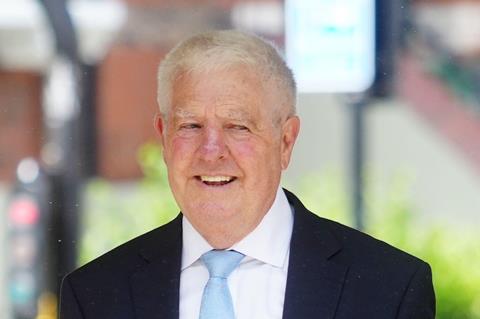Some victims of the Post Office scandal have been denied full and fair compensation because they have lacked access to early legal advice, the statutory inquiry concluded today.
Publishing the first volume of the inquiry’s report, chair Sir Wyn Williams said it was ‘indefensible’ that the government refuses to pay for claimants in the Horizon Shortfall Scheme to speak to a lawyer before deciding whether to accept a fixed offer of compensation.

The 162-page first volume was laid before parliament today. It focuses on the human impact of the wrongful convictions based on the flawed Horizon IT system and the various schemes implemented to offer compensation to those affected. An estimated 10,000 eligible claimants are in the schemes, with that number likely to rise.
In his report, Williams found that, despite the government and Post Office appearing to show a genuine desire to provide full and fair redress, the reality has been that victims have come up against ‘formidable difficulties’. He said: ‘I am persuaded that in the difficult and substantial claims, on too many occasions, the Post Office and its advisers have adopted an unnecessarily adversarial attitude towards making initial offers which have had the effect of depressing the level at which settlements have been achieved.’
Meanwhile the Horizon Shortfall Scheme (HSS) creates a 'fear factor by forcing claimants to choose between accepting a fixed £75,000 offer or rejecting it and going to assessment by an advisory panel'. This fixed sum offer was introduced in 2024. This decision is made more difficult by the Department for Business and Trade’s refusal to pay for legal advice for those contemplating the fixed sum offer. Reasonable legal costs are only provided for those rejecting the offer.

Williams suggested claimants are forced into an irrevocable decision with ‘no going back’, adding he was ‘instinctively uncomfortable about the inflexibility of the current position’.
‘I regard it was unconscionable and wholly unfair that claimants in the HSS are unable to obtain legal advice, paid for by the department, about whether they should opt for the fixed sum offer or assessment of their claims,’ said Sir Wyn. ‘Yet the department continues to resist this as if its life depended on it.’
The report outlined that the inquiry had received a ‘substantial body of evidence’ suggesting that once a first offer of compensation was rejected by a claimant, the second offer was significantly higher. The difference between first and second offers has been at least £100,000 on occasion.
Delays have been such that of the 1,500 cases yet to be resolved in HSS, 314 had been submitted as far back as 2020.
Williams added: ‘The number of such unresolved cases demonstrates quite clearly that the resolution of the high value claims causes significant difficulties because the claimants on the one hand, and the Post Office on the other, have markedly different views about what constitutes full and fair.’
Williams recounted the view of Lorna Gratton, a non-executive director representing the government on the Post Office board. Gratton had suggested ‘giving the benefit of the doubt to claimants, even if that means a greater payout than one that might result from a hard-fought negotiation in line with a conventional legalistic approach’. In her view too, lawyers from Herbert Smith Freehills representing the Post Office were ‘prone to argue, unnecessarily, about comparatively small sums of money’. Williams said he found much of Gratton’s evidence ‘persuasive’.
In a statement following the report publication, HSF said: 'Since our firm was first engaged in this matter, our teams supporting the Post Office have worked with the professionalism and diligence that our clients expect. We remain committed to supporting the Post Office, alongside the Independent Advisory Panel, in their assessment and delivery of compensation that is fair and accessible.'
The chair recommended that the government and Post Office agree on a definition of ‘full and fair’ compensation and that all HSS claimants should receive government-funded legal advice. Close family members of people affected by the Horizon scandal should also receive compensation, and a senior lawyer should be appointed to the HSS scheme to make sure compensation offers are made and assessed as soon as possible. Williams said he expects the government and Post Office to provide a written response to his recommendations by 10 October.
Further volumes of the inquiry report will be published in due course looking in greater depth at who was responsible for the scandal.
Law Society pesident Richard Atkinson said: 'We recognise the enormous pain caused to the innocent victims of this gross miscarriage of justice, which cannot be allowed to happen again. The call for full and fair redress, including improved independent oversight by a suitably qualified senior lawyer, and guaranteed access to free legal advice for claimants, is welcomed.
'More than a decade on from the scandal, it is unacceptable that victims continue to face delays in receiving the compensation they are owed. It is essential for justice and the public’s faith in the legal system for the process to be clear, transparent, fair and fast.'
This article is now closed for comment.































5 Readers' comments